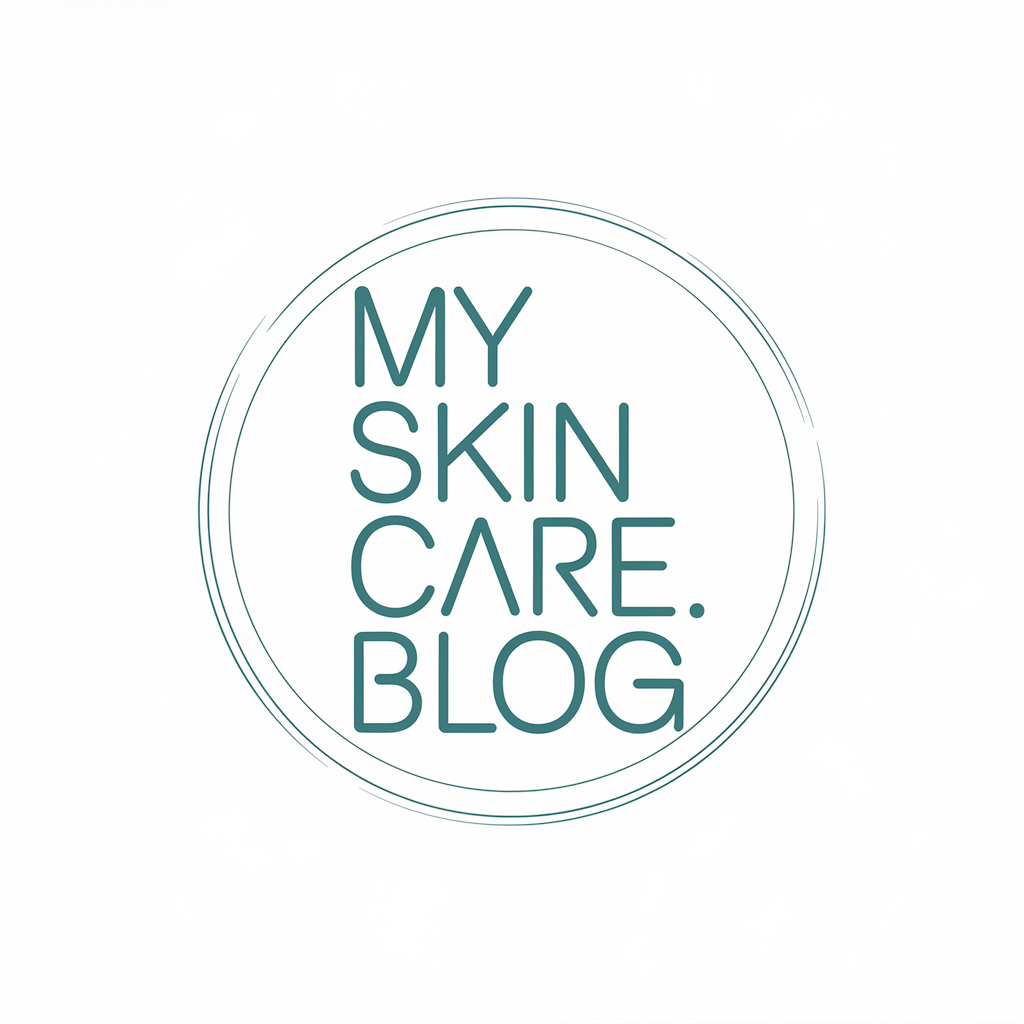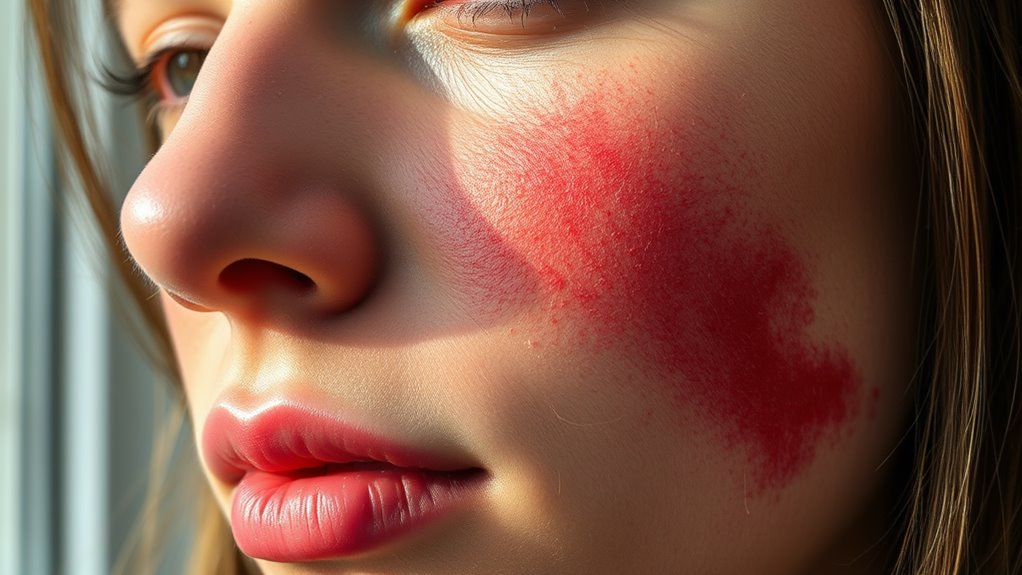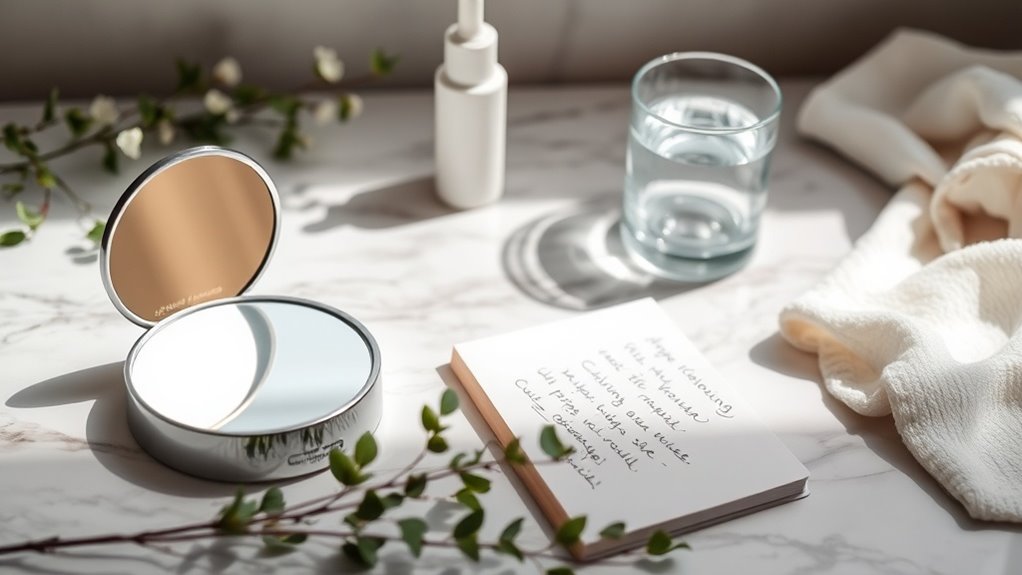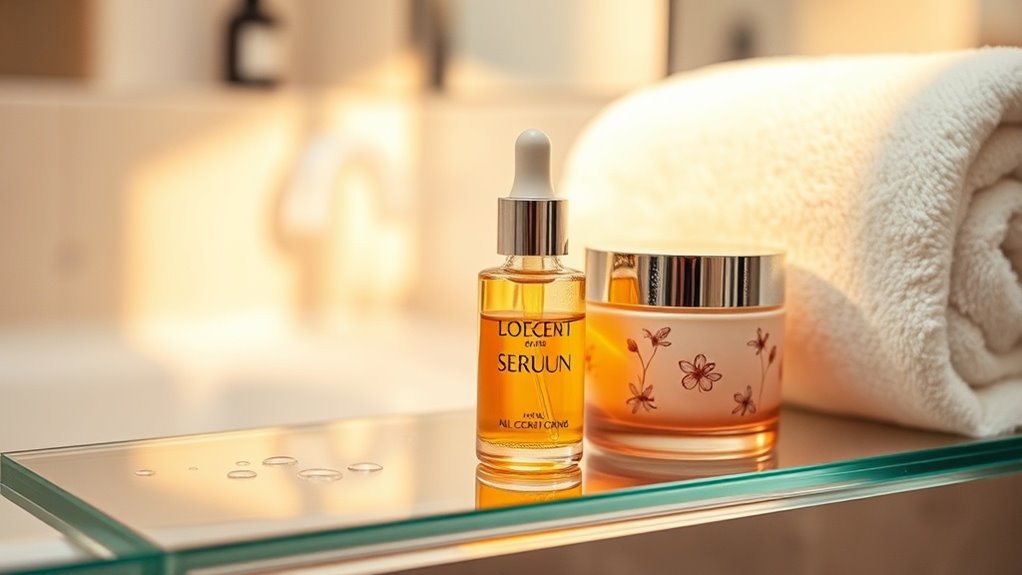These Skincare Mistakes Are Making Your Skin Worse (Stop Doing #3)
You’re making your skin worse by over-exfoliating, which strips your barrier, or skipping daily sunscreen, increasing UV damage and aging. Worst of all, sleeping with makeup on traps dirt and bacteria, leading to breakouts and inflammation—stop it now to protect your skin. Using wrong products or overloading layers adds more harm, so adopt smarter habits today and uncover additional fixes in the details ahead.
Key Takeaways
- Over-exfoliating can strip your skin’s barrier, causing irritation and dryness.
- Skipping daily sunscreen increases UV damage, accelerating aging and cancer risk.
- Sleeping with makeup on traps dirt and bacteria, leading to breakouts and inflammation.
- Using products not suited to your skin type may cause irritation or clogged pores.
- Popping pimples can introduce infections, resulting in scars and prolonged healing.
Over-Exfoliating Your Skin
While exfoliating can refresh your skin’s texture, overdoing it often strips away its natural barrier, leaving you prone to irritation and sensitivity.
Over-exfoliating tops the list of common skincare mistakes, as it erodes essential protective layers, leading to inflammation and dryness, according to dermatological studies.
You’re risking long-term damage if you exfoliate more than twice weekly, so assess your skin type first. When choosing exfoliation methods, consider different skin types to ensure you’re using techniques suited to your specific needs.
Opt for gentle, pH-balanced products and always follow with hydration to restore balance.
To avoid premature aging, follow expert recommendations for proper exfoliation frequency and consider gentle alternatives to maintain youthful skin.
Ignoring Sunscreen Daily
You often skip sunscreen in your daily routine, and that’s a costly mistake that exposes you to UV damage risks.
This negligence accelerates premature skin aging by breaking down collagen and elastin.
Worse, it heightens your cancer risk, as studies link unprotected sun exposure to higher rates of skin malignancies.
Additionally, understanding sunscreen myths can help you adopt more effective daily protection strategies.
Moreover, sunscreen serves as the most essential anti-aging skincare product by blocking harmful UV rays and preventing premature damage.
UV Damage Risks
Ignoring sunscreen daily exposes your skin to harmful UV rays, which can accelerate aging, increase cancer risk, and cause long-term damage like wrinkles and sunburn.
UV radiation, including UVA and UVB, penetrates deeply, damaging DNA and suppressing your immune system, heightening risks for melanoma and other skin cancers—backed by studies from the American Academy of Dermatology.
You’re not just risking burns; you’re inviting cellular mutations.
Protect yourself practically: Apply broad-spectrum SPF 30+ every day, even indoors, and reapply outdoors to minimize these threats effectively.
Don’t wait—your skin depends on it.
Premature Skin Aging
Premature skin aging accelerates when you skip daily sunscreen, leading to wrinkles, fine lines, and loss of elasticity as UV rays break down collagen and elastin fibers.
You’re exposing your skin to free radicals that speed up this damage, making it look dull and uneven.
Dermatologists agree that consistent SPF 30+ use protects against these changes.
Make it a habit: apply sunscreen every morning, even on cloudy days, and reapply if outdoors.
This simple step preserves your skin’s youthful glow and maintains its natural barrier, based on solid research from skin health studies.
Cancer Risk Rise
Failing to apply sunscreen daily heightens your cancer risk, as UV rays directly damage skin cells and DNA, potentially triggering mutations that lead to melanoma or other skin cancers.
You’re exposing yourself to unnecessary danger, with evidence from dermatological studies showing UV radiation causes over 90% of skin cancers.
Make it a habit: select a broad-spectrum SPF 30+ lotion, apply generously to all exposed areas, and reapply every two hours outdoors.
This simple step slashes your odds—don’t ignore it, as prevention beats treatment every time.
Stay vigilant for changes and consult a doctor promptly.
Sleeping With Makeup on
You risk clogging your pores when you sleep with makeup on, as it traps dirt and oil against your skin.
This buildup triggers breakouts by fostering bacteria that inflame and irritate your complexion.
Make it a habit to cleanse thoroughly each night to protect your skin’s health.
Moreover, avoiding inconsistent application of your nightly routine can help prevent these common skincare pitfalls.
To minimize breakouts further, incorporate proper cleansing techniques as part of your routine.
[LIST OF 3 SUBHEADING DISCUSSION POINTS IN ENGLISH
Why does sleeping with makeup on harm your skin? It traps dirt and bacteria overnight, leading to irritation and breakouts that disrupt your skin’s natural repair process.
You’ll notice increased inflammation, as makeup residues prevent your skin from breathing and regenerating effectively.
Dermatologists warn that this habit accelerates aging signs, like fine lines, by blocking essential moisture and nutrients.
Stop this mistake tonight: Always cleanse thoroughly before bed to maintain a healthy barrier and reduce infection risks.
Clogs Your Pores
Sleeping with makeup on clogs your pores, trapping dirt, oil, and bacteria that cause breakouts and inflammation. This disrupts your skin’s natural barrier, leading to pore enlargement and a dull, uneven texture over time.
Dermatological studies confirm that residual makeup hinders cellular renewal and increases impurity buildup. To fix this, always remove makeup with a gentle, non-comedogenic cleanser before bed—aim for double cleansing if needed.
Choose products based on your skin type, and make it a non-negotiable habit. By prioritizing this step, you’re maintaining pore health and supporting long-term skin vitality without added risks.
Triggers Breakouts
Leaving makeup on overnight triggers breakouts by trapping bacteria, oil, and environmental pollutants against your skin, fostering an ideal environment for acne.
This habit disrupts your skin’s natural barrier, leading to inflammation and potential scarring. Backed by dermatological studies, it’s a common error that worsens acne-prone skin.
To break the cycle:
- Bacteria multiply, clogging pores and sparking painful pimples.
- Oil buildup accelerates blackheads and uneven texture.
- Pollutants penetrate deeper, causing redness and sensitivity.
- You’re missing nightly repair, prolonging breakouts unnecessarily.
Make it a rule: Cleanse every night for healthier, clearer skin.
Using the Wrong Products for Your Skin Type
One of the biggest skincare pitfalls is choosing products that don’t suit your skin type, as this can trigger irritation, breakouts, or ineffective results.
To fix this, start by identifying your skin—oily, dry, combination, or sensitive—through observation or a dermatologist’s assessment.
Dermatological studies show mismatched products disrupt your skin’s barrier, worsening issues like inflammation.
Choose formulations backed by evidence; for example, select non-comedogenic items for oily skin to prevent clogged pores.
Always read labels and patch test new products for safety.
This targeted approach ensures your routine supports, rather than sabotages, your skin’s health.
When selecting products, also factor in budget considerations to ensure they align with your financial situation.
Additionally, when building your skincare regimen, consider the price-to-value ratio to make informed decisions that balance cost and effectiveness.
Overloading on Skincare Layers
You often pile on too many skincare layers thinking it’ll boost results, but you’re actually inviting pitfalls like irritation and product incompatibility.
This overload can overwhelm your skin’s barrier, leading to breakouts or reduced effectiveness, as research highlights the risks of excessive application. Furthermore, overlooking skincare compatibility can lead to more severe skin reactions over time.
Start simplifying your routine by sticking to a few key, compatible products that deliver what you need.
To achieve optimal skin health, incorporate proper cleansing, targeted treatment, and effective moisturizing.
Layering Pitfalls
Although enthusiasts often layer products to maximize benefits, overloading your skincare routine can overwhelm the skin’s barrier and cause issues like irritation or clogged pores.
This disrupts your skin’s natural balance, leading to inflammation and reduced efficacy. To avoid these pitfalls, focus on these key errors:
-
You’re combining incompatible ingredients, like retinol and acids, which amplify sensitivity.
-
Applying thick layers traps dirt and oil, promoting breakouts.
-
Ignoring your skin type causes barrier damage from excessive moisture or dryness.
-
Overusing actives without breaks heightens redness, as evidenced by dermatological studies.
Simplify Routine
Excessive layering in your skincare routine often disrupts the skin’s barrier, so streamline it by selecting only essential products.
This overload can irritate your skin, leading to dryness, breakouts, or inflammation, as research from dermatology journals confirms that multiple layers hinder absorption and strain the barrier.
Stick to basics: a cleanser, targeted serum, moisturizer, and sunscreen.
You’ll enhance efficacy by applying fewer products, giving your skin time to recover.
Track changes over weeks; if issues persist, consult a dermatologist for personalized advice, ensuring long-term health and radiance.
Popping Pimples and Blemishes
While it may offer temporary relief, popping pimples often introduces bacteria deeper into the skin, leading to infections, scarring, and prolonged healing.
You’re inviting unnecessary complications by disrupting your skin’s barrier, which can exacerbate inflammation and delay recovery.
- It forces bacteria into pores, increasing infection risk and potential abscesses.
- You risk permanent scars and dark spots that mar your complexion long-term.
- Healing drags on, causing extended redness, swelling, and discomfort.
- This habit spreads blemishes, triggering more breakouts across your face.
Opt for spot treatments and professional advice to protect your skin effectively. Individuals with sensitive skin are particularly vulnerable to these issues, making prevention even more essential.
To prevent these issues, consider adopting gentle skincare routines that promote healing without damaging the skin barrier.
Neglecting to Patch Test New Products
Ever wonder why a new skincare product suddenly leaves your skin irritated or inflamed?
It’s because you’re skipping patch testing, which exposes you to hidden allergens or irritants.
Dermatological studies confirm that up to 15% of users develop contact dermatitis from untested products, leading to redness, itching, or breakouts.
To do it right, apply a small amount to your inner forearm, wait 24-48 hours, and watch for reactions.
If all’s well, proceed gradually.
This simple habit protects your skin barrier, prevents unnecessary inflammation, and ensures safer product integration.
Don’t overlook it—your skin will thank you.
Using Expired Skincare Items
Using expired skincare items risks your skin’s health by reducing product effectiveness and potentially causing irritation.
You’re exposing yourself to bacteria buildup and diminished results, which can trigger breakouts or sensitivity.
To protect your skin, adopt these practical habits:
-
Check expiration dates: Look for the PAO symbol or printed dates on packaging to ensure freshness.
-
Inspect for changes: Notice odd smells, colors, or textures as red flags for spoilage.
-
Store correctly: Keep products in cool, dry places to preserve their integrity.
-
Rotate regularly: Audit your collection every few months and discard outdated items to maintain efficacy.
Cleansing Too Aggressively
Cleansing your skin too aggressively strips away its protective oils, leaving it vulnerable to dryness and irritation. This disrupts the skin’s barrier, heightening risks of infections, redness, and breakouts, as evidenced by dermatological studies showing pH imbalance from harsh scrubbing.
You exacerbate issues like acne by using abrasive tools or hot water, which remove essential lipids. Instead, choose a gentle, sulfate-free cleanser and apply with soft fingers, limiting to twice daily.
Pat dry carefully to maintain balance, preventing long-term sensitivity and promoting a healthier complexion.
Skipping Moisturizer in Your Routine
Skipping moisturizer in your routine might seem harmless, but it leaves your skin dehydrated and prone to issues like premature aging and irritation. This disrupts your skin’s barrier, allowing moisture loss and environmental damage, which experts link to increased sensitivity and ineffective routines.
-
Compromises your barrier: You weaken defense against pollutants, heightening irritation.
-
Accelerates aging: Without hydration, fine lines and wrinkles form faster, as studies show.
-
Causes dryness: Your skin loses elasticity, leading to flakiness and discomfort daily.
-
Reduces product efficacy: Other items can’t penetrate properly, wasting your efforts.





